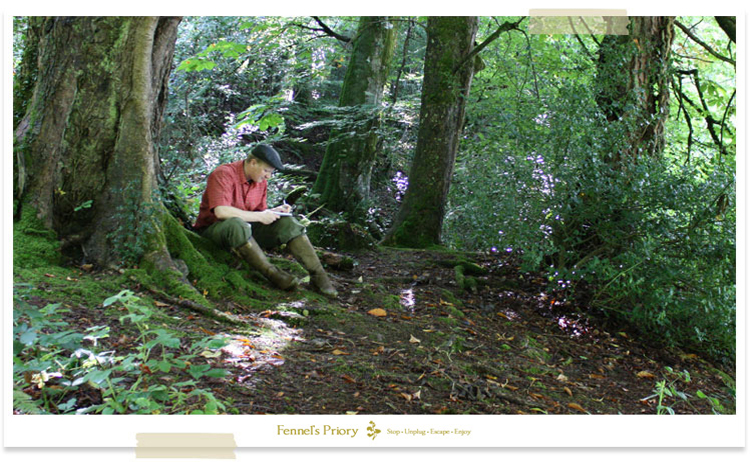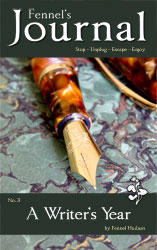
The Silent Writer
Last Monday – when tears fell from the sky and the sun covered its eyes – I stood motionless and cold in a silent and dusky place. My friends huddled around me; their eyes glistening with sadness, their shoulders slumping, and their hands clenching the air – trying to grasp something tangible from the situation. Alas, the air was empty and although we were together, we felt alone.
My friends and I were at the funeral of a close mutual friend, someone who’d touched our lives but had been taken from us following a long battle with illness. As his coffin made its way down the aisle, it was accompanied by a wave of silence from the mourners. Breathing slowed and every sense intensified. Supremely alert, we became aware that our friend really was gone.
As our grief heightened, we were asked to lift our faces upwards and celebrate the life of our friend. We did so, and then inhaled, filling our lungs to capacity. We then sang loudly, lifting the mood with hymn. I pictured my friend’s face and our times together, and in doing so felt a smile form on my lips. The silence was gone, and the room seemed warmer. I was grateful – to have known my friend and to be there to send him off with such respectful rejoicing. He was, after all, the man I most admired, and the person who got me to share my writing with a wider audience.
My friend was a journalist. For the last twenty years of his life he and I met regularly, and corresponded each month. Often he would be teaching me about writing without me knowing he was doing so. His letters always contained subtle guidance. Well, all except one.
Back in 2008, when I was rebuilding my life following a breakdown, I received a letter from my friend urging me to publish my stories. He was unaware of my recent illness, but knew of my background in writing: that I’d written my first book at the age of 14, that I’d been a professional copywriter for many years, and that, in 1998 (at the age of 24), I had turned down the chance to write a regular column in a quality magazine. He also knew that I lacked self-confidence and had written in secret for a decade, amassing enough material for a series of books.
As one of my closest friends, he knew that I was confident writing on behalf of someone else, but was paralysed with fear when it came to publishing under my own name.
"Fennel,” he wrote, "you are the most naturally gifted writer I’ve ever met. It’s absurd that you keep your voice to yourself and your close friends – only sharing it in your letters. It’s about time you allowed others the pleasure of benefiting from your words. So stop being so daft and publish your work – before we’re all too old to read it without glasses!”
His instruction, and the threat of a Size 5 boot from my other half, was what encouraged me to publish Fennel’s Journal, a series of magazines and eBooks themed around rural life.
Since then, many editions of Fennel’s Journal have been published. They have been read by over 7,000 people in 31 countries – a far cry from the occasional handwritten letter I’d sent to my friends. It’s the biggest achievement of my life, all because my friend believed in me, and pushed me out of a self-limiting corner. But I’m by no means a mass-market author, at least not yet. And this article is not meant to be a plug for my books. What I hope to share with you here is my passion and love for writing, and to explain what it’s like to be a writer.
Ekhart Tolle wrote that all true artists, whether they know it or not, create from a place of no-mind, from inner stillness. This is perhaps the best place to start when describing what writing means to me.
While modern businesses (and, in many respects, our careers) are built by getting out there and being extrovert, the creative process is often best when individuals are left to drift into (or maintain) an introverted state. Just look at the work done by writers and artists – even computer programmers, academics and medical researchers. It’s a quiet occupation, of silent observation, contemplation and creation; where genius sparks from the darkness –like midnight lightning on a moonless night.
Creative people might appear inactive, but their brains are firing at an astounding pace. There’s energy and excitement in the process. It’s addictive and compelling. It’s also soothing and pacifying. It’s the perfect state, I’d argue: of total relaxation and complete adrenaline. Because, when a writer is on creative fire, he or she is empowered by where the process takes them. This is the buzz we writers seek. Yet buzz or not, a writer must write. It’s in his or her make-up. Whether we write for publication or not, we gain pleasure from placing the results of our imagination upon the page. But it’s not always an easy thing to do, especially when we have to pitch our ideas to others and convince them of our ability.
The personal nature of writing is what often makes it so difficult to share our words with others. It’s why I wrote in secret for ten years, until I had the confidence to cope with criticism – and praise. Laying myself bare, for others to see into my world, was the bravest thing I’ve ever done.
If you were to strip everything from me until only my spirit was left, you would find a writer. The real me. The one who wishes to be seen and heard and yet hid from view for many years. I’m continually breaking free from the shackles of shyness, to share my writing with others. And in doing so, I am stepping forward, like the virgin boy holding a red rose on Valentine’s Day, announcing to the world, "This is me. Please like me. Please understand me. And please enjoy my company.”
And now that I’ve spoken, I’ve found that the rewards are broader than mere literary merit. Other areas of my life are becoming more authentic to my true self. I am less worried about fashions and the need to ‘fit in’, and I’ve become a more relaxed and likeable person: someone who is comfortable in being ‘me’.
At the start of a writing day, when I see that first sheet of blank paper or a cursor flashing upon a white screen, I see not pulped wood, or pixels, or even the fear of nothingness. I see a mirror, an opportunity to paint a picture of the world as I see it. It’s always the best and purest challenge of the day, one where I rub my hands and grin with anticipation.
If you’ve ever conned yourself into thinking there’s such a thing as writer’s block, all you need to do is realise that writing is an organic process. Seeds take a while to germinate, so it’s always best to prepare the seedbed with ideas and angles before you start writing. And if nothing appears, then start reading. It doesn’t matter what. Just get words to flow through your mind so that others will follow. Then when ideas come forth, jot them down and then order them into your storyboard – a route map of where you want to go – so that once you’re moving, your creative side can determine the speed and style of travel. (As Terry Pratchett wrote, "there’s always an angle, and always a way.” So keep going, without fear of a stalled or flooded engine.)
Why then do I pause and grip my pen whenever I think of approaching an agent or editor? The honest answer is that no matter how many people read my books or give me praise, there’s always the sensitive, insecure (and slightly neurotic) perfectionist within me who tells me I’m not ready; who believes I can always do better. That nothing is ever finished, that I should always try harder to push myself and achieve bigger things, to uncover more radical ideas and write more memorable and remarkable stories until, one day in the distant future, everything will be ‘just right’ and I’ll be qualified to make the all-important call. But it’s a cowardly act; hurdles put in the path of success. It’s why eventually a writer needs someone to push him from behind, so he has no choice but to see that the words on the paper before him (that he so creatively described as a mirror) really do reflect his nature – perhaps better than a real mirror – and that they shout loudly and clearly for him to believe in them.
Often I worry that my words might not register with the reader, who might not be so passionate about the things they experience. But as you’re still reading, I conclude that you are interested in things that matter. You know what you like and understand that a person’s sense of identity shapes his or her life. My message, therefore, is: "Remain authentic. Be what and who you are. Honesty and integrity are the true beacons. They shine, as do you. You’re amazing. Just for being you.” That’s the connection that counts. So stay connected to you who are, and others will be drawn to what you do and say.
And there it is: a less than subtle message, written in memory of my friend whose funeral enabled the silence where these words were found. But the silence is broken. My friend is gone. This creates noise: noise beckoning me to write more, and for ever-bigger publications. Noise that deafens self-doubt and disbelief, and which forces a writer like me into action.
It’s time for us to write. To find the story and the angle. To live and write, and write and live. As Douglas Pagels said:
"Each new day is a blank page in the diary of your life. The secret of success is in turning that diary into the best story you possibly can.”
So, authors all, let’s write those bestsellers, and be proud of who we are.
 If you like this blog, you'll like Fennel's book A Writer's Year.
If you like this blog, you'll like Fennel's book A Writer's Year. Please also subscribe to the Fennel on Friday weekly email. You'll receive either a blog, video or podcast sent to you in time for the weekend.



